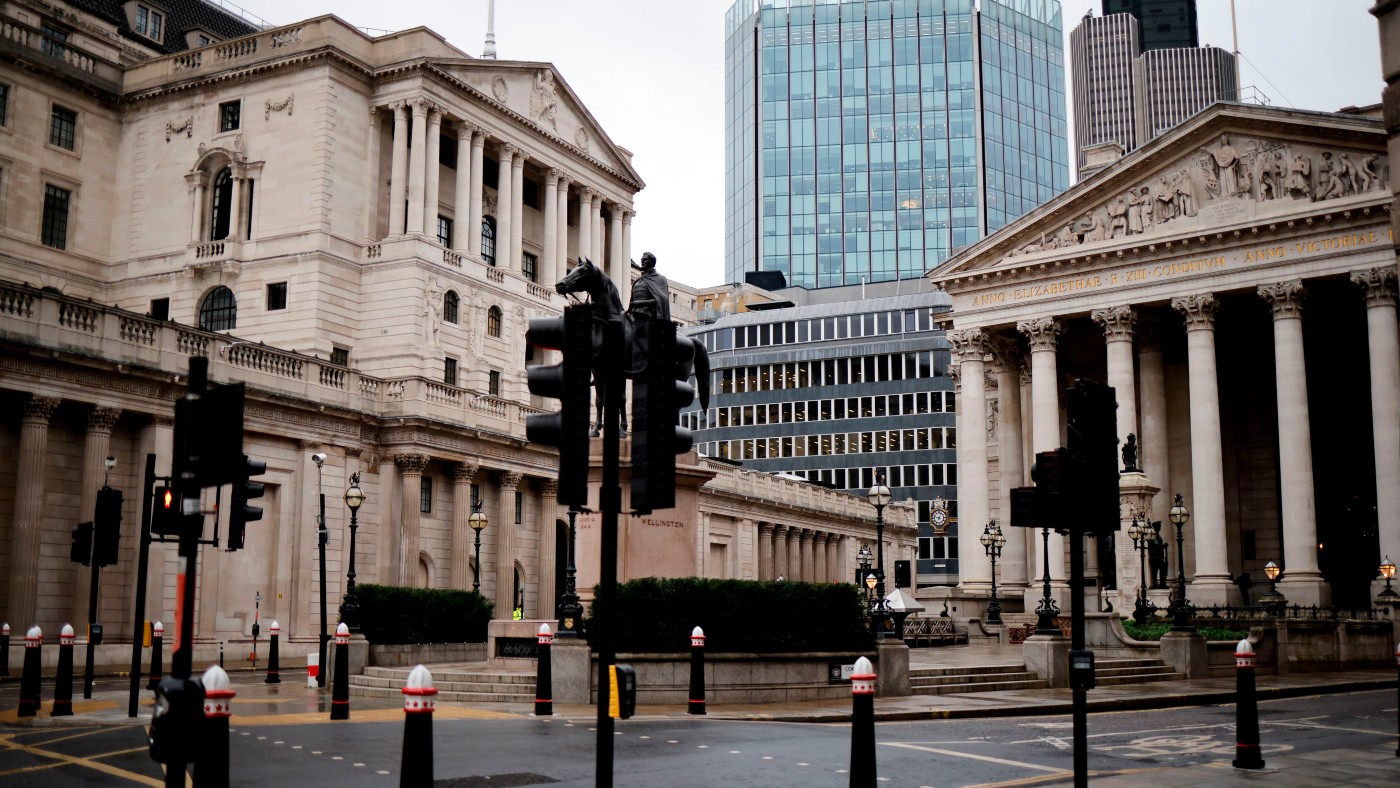Winter blues: how much damage could Omicron do to the UK economy?
The chief worry may not be the necessity for another furlough, but big ‘inflationary pressures’

A free daily email with the biggest news stories of the day – and the best features from TheWeek.com
You are now subscribed
Your newsletter sign-up was successful
“We’ve always acknowledged there could be bumps on our road to recovery,” observed the Chancellor, Rishi Sunak, last week. Omicron looks like a sizeable one, said Simon Duke in The Times. Before the variant struck, it seemed “all but certain” that the Bank of England would this week lift borrowing costs from a historic low of 0.1% to tackle rising prices. Indeed, ahead of the decision to increase the interest rate to 0.25%, some economists were still arguing that a raise would send the important message that policymakers are serious about tackling inflation, which jumped to a ten-year high of 5.1% in November. For most, however, “the pendulum has swung decisively in the other direction”. There are now real fears that the economy will contract, said Maike Currie of Fidelity on Sky News. “The BoE will be acutely aware that it’s harder to dig an economy out of recession than to cool rising inflation.”
In fact, “Britain’s economic recovery had come close to stalling”, even before the onset of the new variant, said Larry Elliott in The Guardian. ONS figures show that in October – the first month after the end of the furlough scheme – output grew by just 0.1%, with signs of “a sharp drop-off in visits to restaurants, pubs and bars”. They have now been whacked even further by the tougher Plan B curbs. “Of the three main sectors of the economy, only services expanded in October.” Manufacturing fell by 0.6%, and construction by 1.8% – “the steepest fall since April 2020”. The effect of Omicron on inflation is “unclear”, said the FT. But the variant is certainly “likely to soften growth” – spreading the slowdown to the services sector, especially after the changed guidance on working from home. “Monetary easing, at this point, can do little to help. Fiscal policy – government spending – is the right way to support the economy.”
“The Treasury will hate the idea of another furlough, let alone more bounceback loans and support for the self-employed,” said James Moore in The Independent. But if the pandemic worsens, it may be the only way to save legions of businesses in hard-hit sectors which have only just emerged from “hibernation”. The last lockdown borrowing bill was huge, but it was “good borrowing”, which “facilitated a faster recovery”. The new restrictions “are not the main cause of the pain now being felt in the economy”, said Jeremy Warner in The Daily Telegraph. “Rather, it is the gathering sense of public panic.” As things stand, it’s unclear whether there’s “justification for another round of business support”. Indeed, “I’m willing to bet” that, three months on, the chief worry will not be the necessity for another furlough, but big “inflationary pressures”.
The Week
Escape your echo chamber. Get the facts behind the news, plus analysis from multiple perspectives.

Sign up for The Week's Free Newsletters
From our morning news briefing to a weekly Good News Newsletter, get the best of The Week delivered directly to your inbox.
From our morning news briefing to a weekly Good News Newsletter, get the best of The Week delivered directly to your inbox.
A free daily email with the biggest news stories of the day – and the best features from TheWeek.com
-
 6 of the world’s most accessible destinations
6 of the world’s most accessible destinationsThe Week Recommends Experience all of Berlin, Singapore and Sydney
-
 How the FCC’s ‘equal time’ rule works
How the FCC’s ‘equal time’ rule worksIn the Spotlight The law is at the heart of the Colbert-CBS conflict
-
 What is the endgame in the DHS shutdown?
What is the endgame in the DHS shutdown?Today’s Big Question Democrats want to rein in ICE’s immigration crackdown
-
 Currencies: Why Trump wants a weak dollar
Currencies: Why Trump wants a weak dollarFeature The dollar has fallen 12% since Trump took office
-
 Elon Musk’s starry mega-merger
Elon Musk’s starry mega-mergerTalking Point SpaceX founder is promising investors a rocket trip to the future – and a sprawling conglomerate to boot
-
 TikTok: New owners, same risks
TikTok: New owners, same risksFeature What are Larry Ellison’s plans for TikTok US?
-
 Will SpaceX, OpenAI and Anthropic make 2026 the year of mega tech listings?
Will SpaceX, OpenAI and Anthropic make 2026 the year of mega tech listings?In Depth SpaceX float may come as soon as this year, and would be the largest IPO in history
-
 Leadership: A conspicuous silence from CEOs
Leadership: A conspicuous silence from CEOsFeature CEOs were more vocal during Trump’s first term
-
 Ryanair/SpaceX: could Musk really buy the airline?
Ryanair/SpaceX: could Musk really buy the airline?Talking Point Irish budget carrier has become embroiled in unlikely feud with the world’s wealthiest man
-
 Powell: The Fed’s last hope?
Powell: The Fed’s last hope?Feature Federal Reserve Chairman Jerome Powell fights back against President Trump's claims
-
 Taxes: It’s California vs. the billionaires
Taxes: It’s California vs. the billionairesFeature Larry Page and Peter Thiel may take their wealth elsewhere